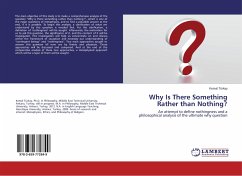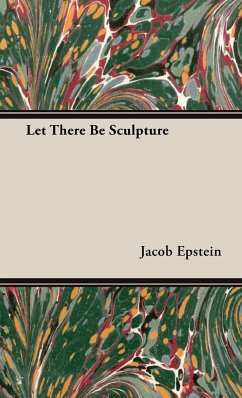
Why Is There Something Rather than Nothing?
An attempt to define nothingness and a philosophical analysis of the ultimate why question
Versandkostenfrei!
Versandfertig in 6-10 Tagen
15,99 €
inkl. MwSt.

PAYBACK Punkte
8 °P sammeln!
The main objective of this study is to make a comprehensive analysis of the question "Why is there something rather than nothing?", which is one of the major questions of metaphysics, and to find a plausible answer at the end, if it is possible. To begin this analysis, a clarification of what we understand by this question is needed first. For the clarification, a definition of 'nothingness' will be sought. Afterwards, the motivation for us to ask this question, the significance of it, and the content of it will be investigated. This investigation will help us concentrate on and discuss within...
The main objective of this study is to make a comprehensive analysis of the question "Why is there something rather than nothing?", which is one of the major questions of metaphysics, and to find a plausible answer at the end, if it is possible. To begin this analysis, a clarification of what we understand by this question is needed first. For the clarification, a definition of 'nothingness' will be sought. Afterwards, the motivation for us to ask this question, the significance of it, and the content of it will be investigated. This investigation will help us concentrate on and discuss within the framework of causation and necessity our understanding of "contingent beings" and "nothingness". Two main approaches sought to answer this question till now are by theists and physicists. Those approaches will be discussed and compared. And at the end of the comparative analysis of these two approaches, a metaphysical approach which will be a layer of them will be sought.














